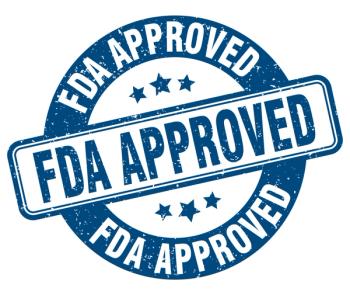
R.Ph.s speak out about OTC version of orlistat
Pharmacists appear pleased with the Food & Drug Administration's recent decision to allow orlistat 60-mg capsules to go over the counter (OTC) in the United States. (See Latebreakers, Feb. 19.) The OTC version, to be marketed by GlaxoSmithKline beginning this summer under the brand name alli, is for use by overweight adults 18 years and older in conjunction with a reduced-calorie, low-fat diet.
Janet Engle, associate dean for academic affairs and clinical professor of pharmacy practice at the University of Illinois at Chicago, gave a thumbs-up to the switch. Noting that orlistat has been studied in more than 100 clinical studies in 30 countries, Engle said, "They [GSK] have done a reasonable job of showing safety." Engle advised, however, that patients need to use the drug as directed. "That's going to be the key. Consumers have to read the label and understand that it's not a magic pill. It's a comprehensive program. That's the message that pharmacists need to get to consumers." Engle said it's important that patients use the educational tools that are part of the treatment.
Glaxo will package capsules with seven pocket reference guides that provide advice on meal planning, what to order when eating out, a fat and calories counter, and a journal for recording daily food intake. The educational plan includes a Web site,
When it comes to possible side effects, Engle said, data from OTC use show that for people who followed the label directions, the side effects were "reasonable.... Only 3% of people dropped out [of the study] because of side effects. The key is that if you are on a low-fat diet, you don't get the side effects. If you eat a cheeseburger and fries and take alli, you have a problem."
Is there a potential for abuse by anorexic people? Engle responded that "alli blocks fat absorption. In the patient with anorexia, it's a non-starter because alli is a fat blocker, and anorexics are not taking in any fat. They are not eating, period."
Jill Johnson, Pharm.D., associate professor at the University of Arkansas for Medical Sciences College of Pharmacy, was skeptical about whether the drug will be used by a lot of people because of its unappealing side effects.
"It's fine if this drug goes OTC, but people are not going to like the side effects. It causes flatus in 24% of patients, fatty oily stools in 20% of patients, and fecal urgency in 22%. A lot of people will take this drug for aesthetic reasons, and those are not very aesthetic side effects," said Johnson.
Johnson doesn't believe that alli produces significant weight loss. She cited a study that appeared in the Archives of Family Medicine in 2000 which followed 796 obese patients with body mass indexes (BMIs) of 30 to 44. They were treated with orlistat for two years. The study found orlistat patients lost about 16 pounds. "Sixteen pounds is better than nothing, but it's not a magic cure. You can't expect to keep eating and take this drug and have the weight stay off," Johnson asserted.
Newsletter
Pharmacy practice is always changing. Stay ahead of the curve with the Drug Topics newsletter and get the latest drug information, industry trends, and patient care tips.























